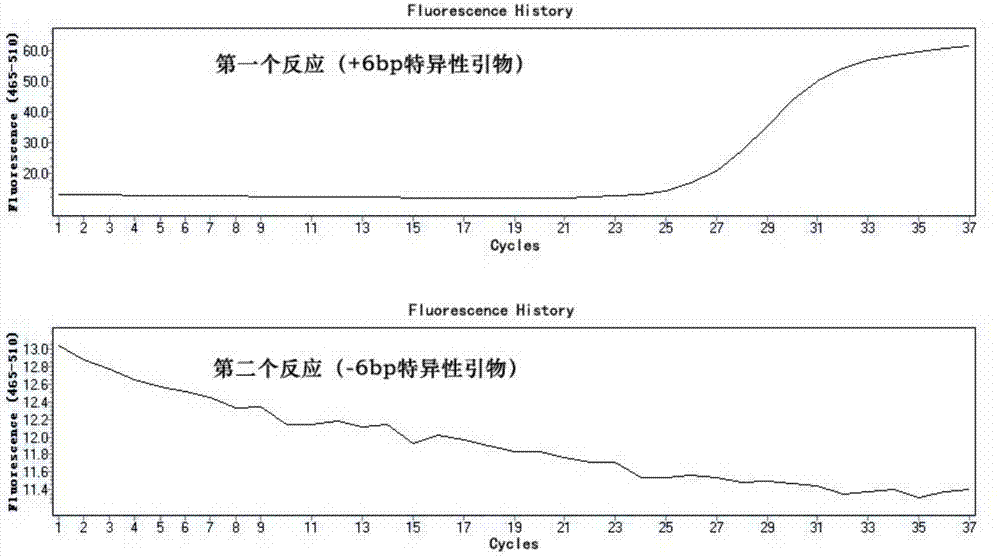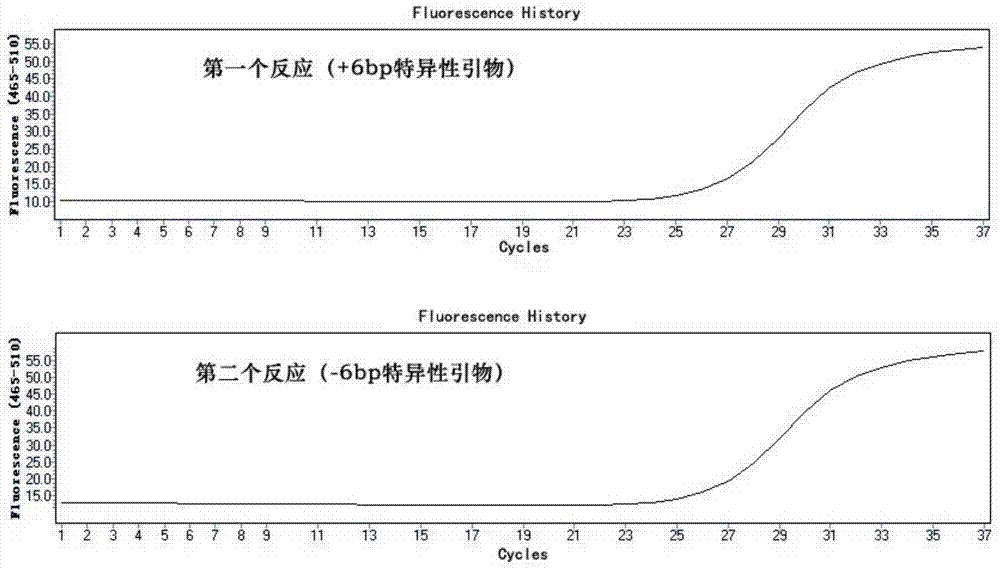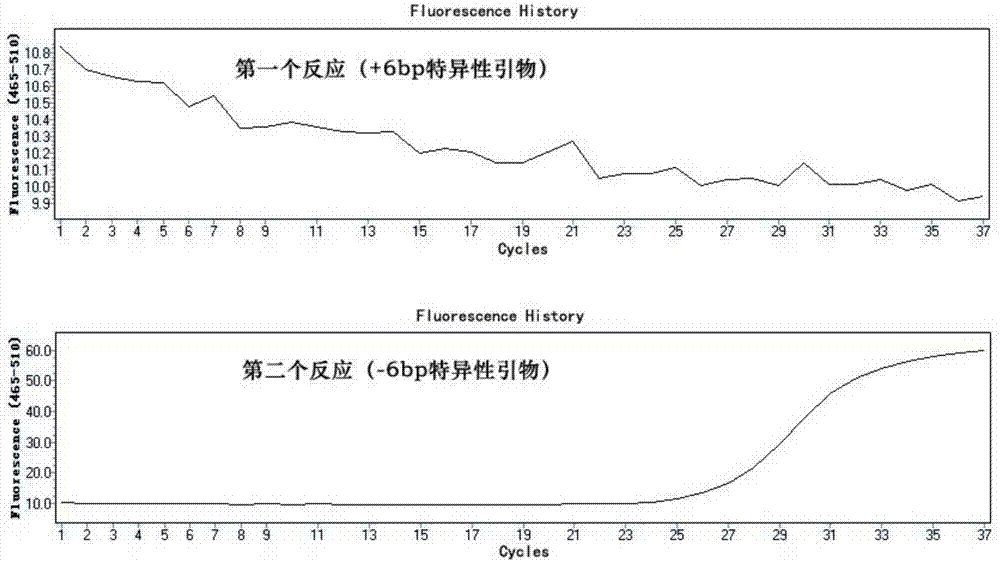Fluorescent PCR based method for detecting polymorphism of TYMS gene
A technology of gene polymorphism and fluorescence, which is applied in the direction of biochemical equipment and methods, microbial measurement/inspection, etc., can solve the problems of PCR efficiency reduction, primer extension block, etc., and achieve improved sensitivity, high site specificity, and guaranteed The effect of accuracy
- Summary
- Abstract
- Description
- Claims
- Application Information
AI Technical Summary
Problems solved by technology
Method used
Image
Examples
Embodiment Construction
[0032] The invention is a technology for detecting TYMS gene 1494del6 polymorphism by fluorescent allele-specific PCR, which can be applied to the analysis of TYMS gene 1494del6 polymorphism in vitro.
[0033] According to the two alleles corresponding to the TYMS gene 1494del6 polymorphism, the present invention designs allele-specific primers respectively, and combines SYBR green technology to accurately determine the polymorphism of the TYMS gene 1494del6 in the sample through the amplification curve after the fluorescent PCR is completed. Specific genotypes of morphological loci. Include the following steps:
[0034] (1) Design of allele-specific primers:
[0035] Design allele-specific primers for the two alleles corresponding to the TYMS gene 1494del6 polymorphism as upstream primers, the sequences are as follows:
[0036] +6bp:5'-GTAGAGTGTGGTTATGAACTTTAA-3'
[0037] -6bp:5'-GTAGAGTGTGGTTATGAACTTTGT-3'
[0038] Design a common downstream primer for the two alleles, t...
PUM
 Login to View More
Login to View More Abstract
Description
Claims
Application Information
 Login to View More
Login to View More - R&D
- Intellectual Property
- Life Sciences
- Materials
- Tech Scout
- Unparalleled Data Quality
- Higher Quality Content
- 60% Fewer Hallucinations
Browse by: Latest US Patents, China's latest patents, Technical Efficacy Thesaurus, Application Domain, Technology Topic, Popular Technical Reports.
© 2025 PatSnap. All rights reserved.Legal|Privacy policy|Modern Slavery Act Transparency Statement|Sitemap|About US| Contact US: help@patsnap.com



